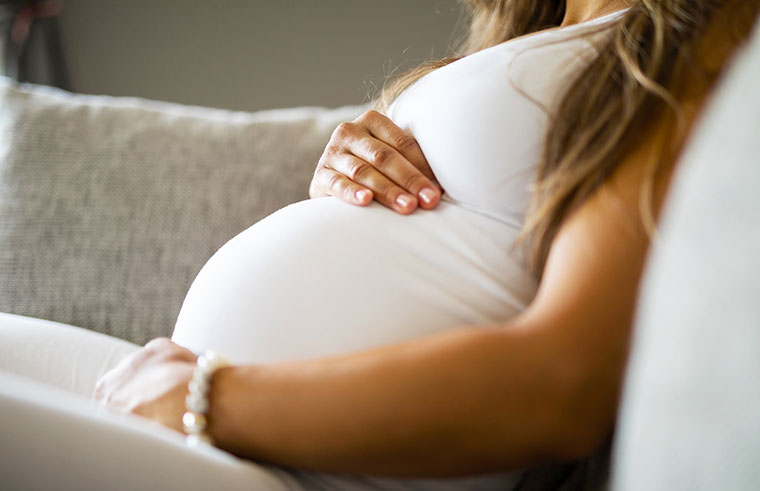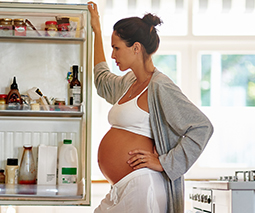Here’s why it’s a good sign if your baby kicks at night

New research aimed at helping mums determine ‘normal foetal movement’ has uncovered some reassuring news for expectant parents of little night owls.
Night moves
A University of Auckland-led research team has just published their findings in the scientific journal PLOS One.
Their study looked at 274 pregnant women, who they interviewed in their third trimester.
They found that babies were most active at night, especially as women crept closer to their due date.
- Three-quarters of the women felt their babies moved strongly in the evening – and much less in the day.
- Two-thirds said that their baby’s movement had grown stronger as the pregnancy progressed.
- Women were more likely to perceive moderate or strong movements when sitting quietly compared with other activities, such as having a cold drink or eating.
- Almost all women reported feeling their babies hiccup.
The researchers aimed to establish some more clear guidelines on the sort of movement that is ‘normal’ so that mums can seek medical attention if their baby’s activity differed from this.
“Pregnant women are often advised to keep an eye on their baby’s movement pattern and report any decrease in movements,” practising midwife and the study lead author, Billie Bradford, a PhD student in the University’s Faculty of Medical and Health Sciences said, Scimex reports.
“The problem is, there is limited evidence about what normal patterns of movement look like, and around the world women are getting mixed advice.”
Pattern of movement matters most
The researchers say that this increased movement in the evening was often put down to women being distracted during the day and not noticing their baby’s movements as much. But that may actually not be the case. Night moves seem to be an actual THING for babies.
“A number of ultrasound and animal studies have shown that the fetus has a circadian pattern that involves increased movement in the evening, and this is likely to reflect normal development,” Bradford said.
The study’s senior author Professor Lesley McCowan explained that a pattern of baby behaviour seemed to be consistent, rather than a kick count.
“It’s clear that the pattern of movement is more consistent across pregnant women than the number of kicks – which varies widely between women, from four to 100 an hour,” she said, Scimex reports.
The authors said that these busy baby evenings can be a sign that all is well with the pregnancy – and a very quiet in-utero baby at night time should not be ignored.
“It may be an antisocial hour for adults, but it is a social hour for the fetus (and incidentally the newborn), so lack of movement at that time warrants an urgent check-up,” Bradford said.
So there you go, mamas. Track your growing baby’s regular movement patterns, rather than the number of kicks.








